
Hiking Around Las Vegas, Death Valley National Park

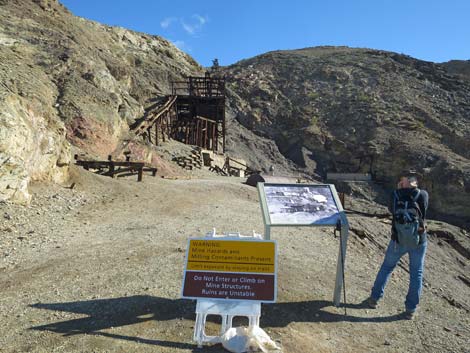 Hiker at information and caution signs below the mill (view NE) |
Overview Out in Death Valley National Park, the 110-year-old Keane Wonder Mine sits silently at the base of the Funeral Mountains. Here, miners struck it rich with a $1 million mine, but when the gold played out, the miners walked away leaving their mess behind. Today, this historical site provides a glimpse into the lives of men and women who made this place home and work. Presented here are photos of the mill at the bottom of the mile-long tramway. These structures include the ore-bucket receiving platform, an ore hopper, water tanks, steam engine boiler, various mining equipment debris, wood from collapsed buildings, and junk piles. To get to the Mill site, from the trailhead at the end of Keane Wonder Road, hike 0.3 miles up the old road to the mill. For details of the hike, including a full description, cautions, trailhead directions, GPS coordinates, and photos, see Keane Wonder Mine and Tramway. |
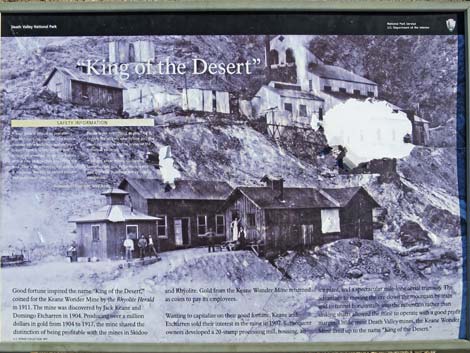 Information sign (view NE) |
Text of the Sign (edited for grammar and clarity): Good fortune inspired the name "King of the Desert," coined for the Keane Wonder Mine by the Rhyolite Herald in 1911. Producing over $1 million in gold from 1904 to 1917, the mine shared the distinction of being profitable with the mines in Skidoo and Rhyolite. Gold from the Keane Wonder Mine returned as coins to pay employees. Wanting to capitalize on their good fortune, Keane and Etcharren [the original claim owners] sold their interest in the mine in 1907. Subsequent owners developed a 20-stamp processing mill, housing, an ice plant, and a spectacular mile-long aerial tramway. By tunneling horizontally into the mountain, rather than sinking shafts, and moving the ore down the mountain by tram, the mine was able to operate with a good profit margin. Unlike most Death Valley mines, the Keane Wonder Mine lived up to the name "King of the Desert." |
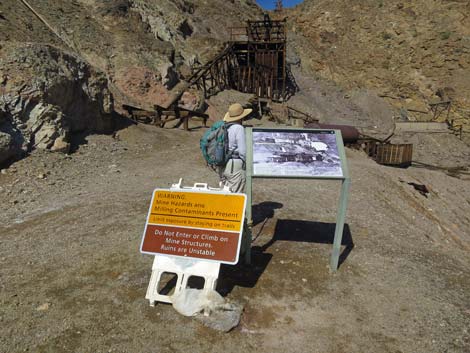 Hiker at information and caution signs below the mill (view NE) |
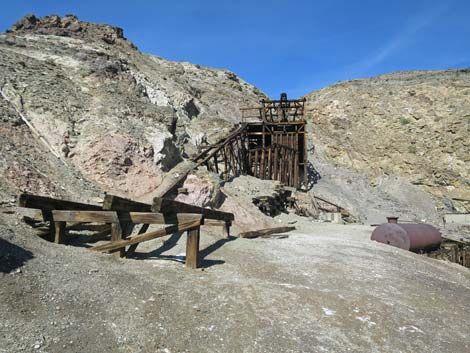 Approaching the mill structures (view NE |
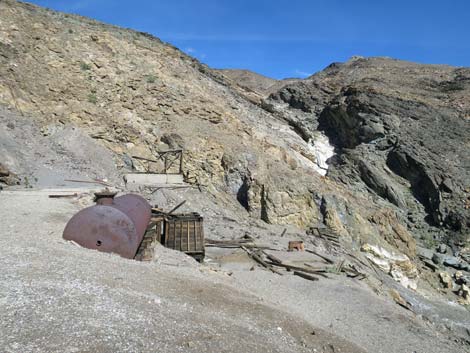 Mill debris below the landing (view E) |
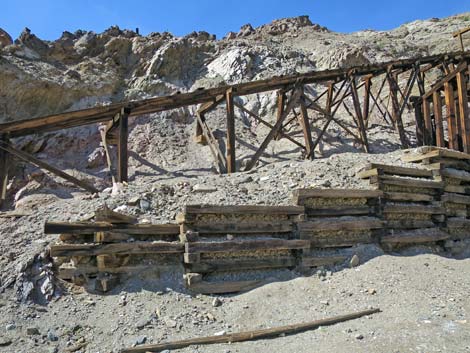 Wooden structures (view N) |
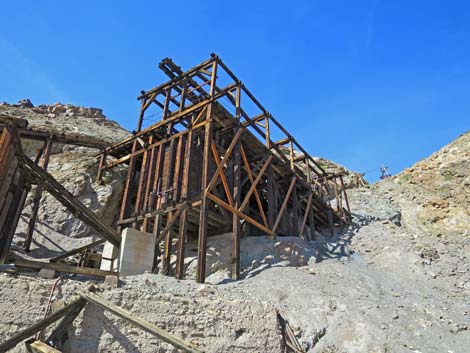 Ore entered the mill from the cable tramway (view NE) |
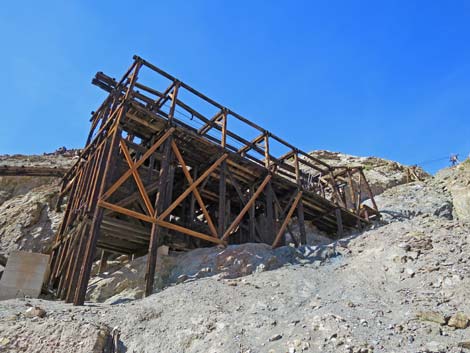 Inside the superstructure, an ore hopper received the ore buckets |
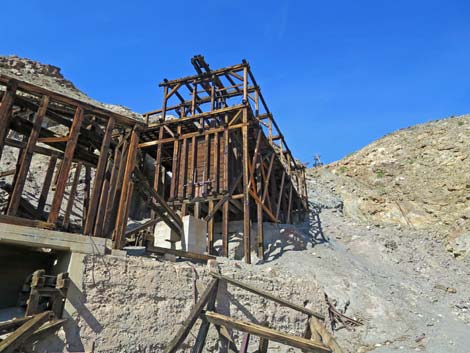 Ore hopper is visible inside the superstructure (view NE) |
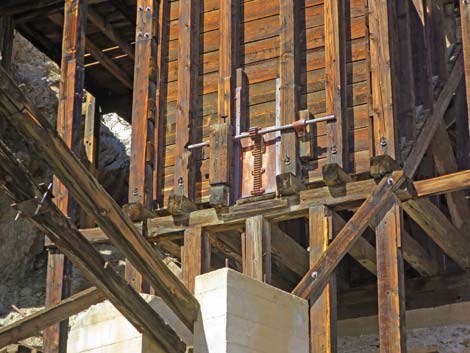 Drain from the ore hopper (view NE) |
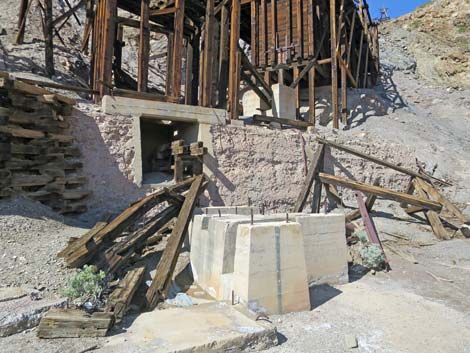 Concrete foundation |
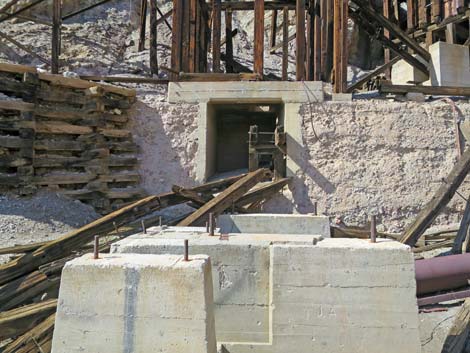 Concrete foundation |
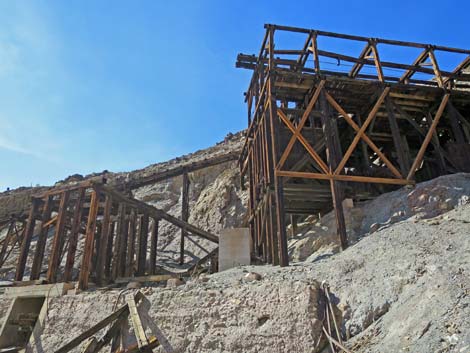 |
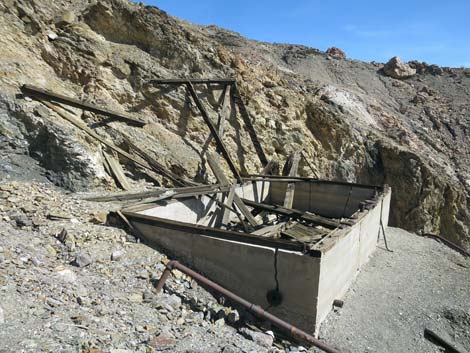 |
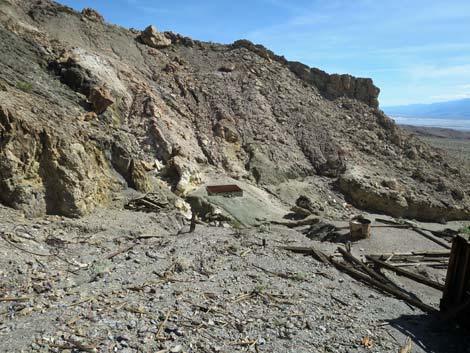 |
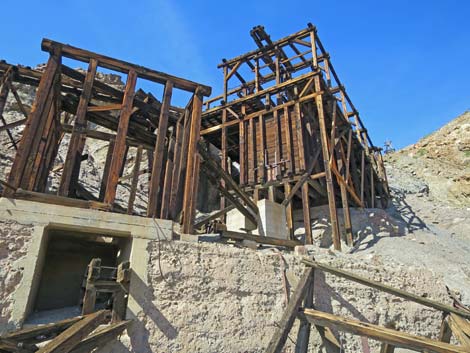 |
 |
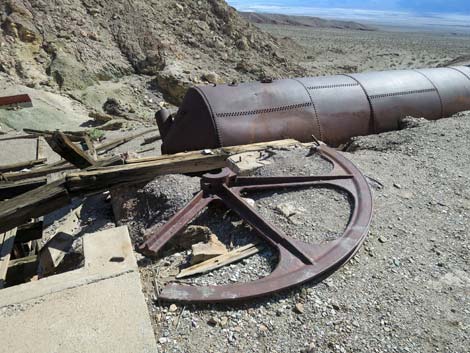 |
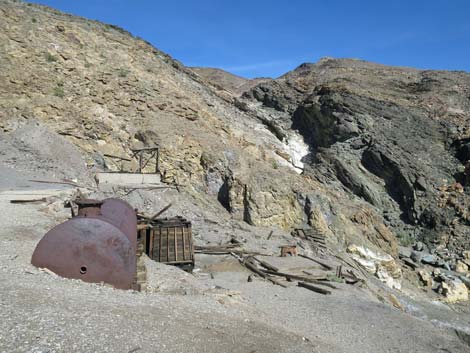 Boiler tank and debris below the landing (view E) |
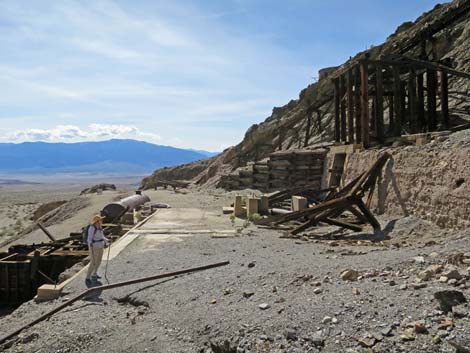 The length of the landing (view W) |
Happy Hiking! All distances, elevations, and other facts are approximate.
![]() ; Last updated 190516
; Last updated 190516
| Keane Wonder | Death Valley | Hiking Around Las Vegas | Glossary | Copyright, Conditions, Disclaimer | Home |